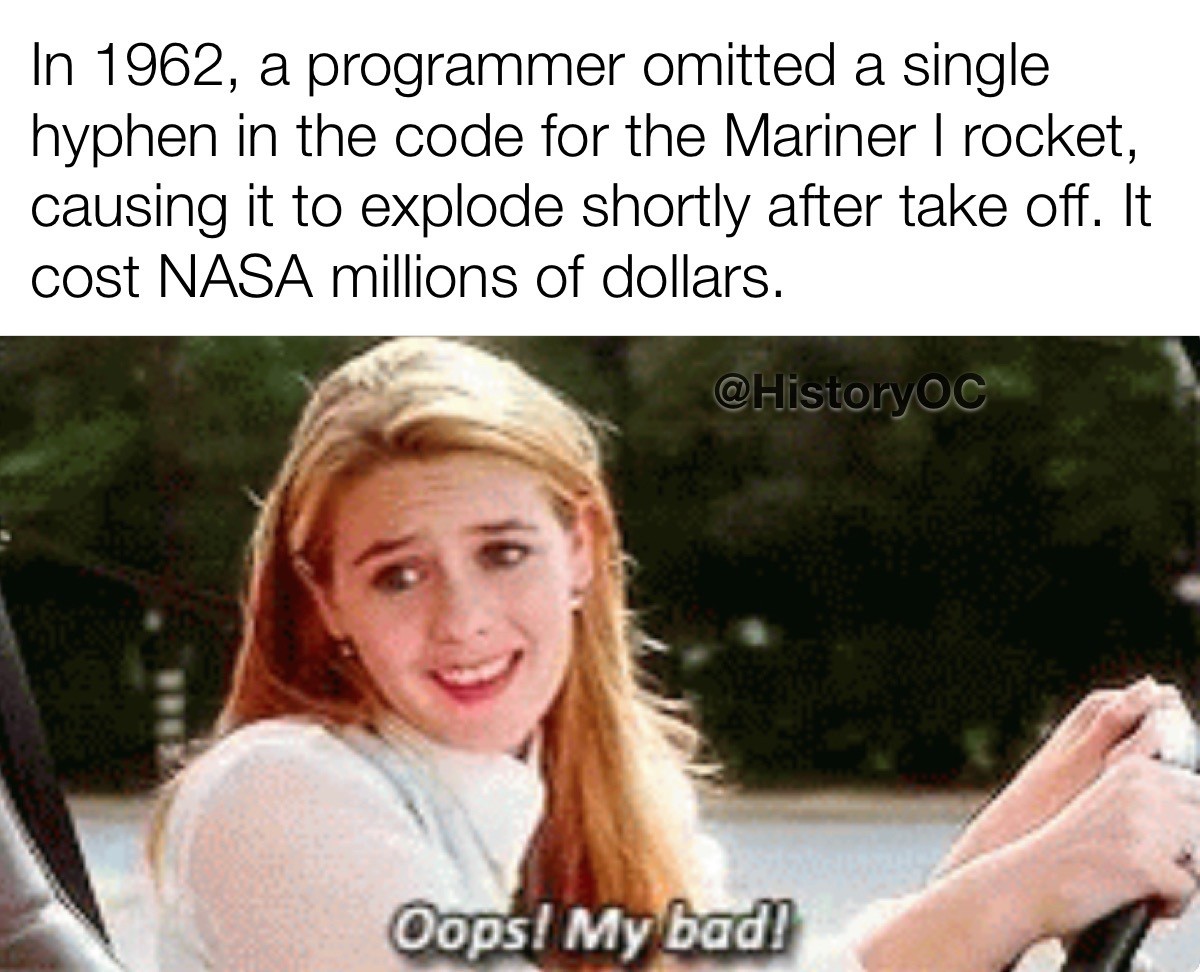this post was submitted on 03 Oct 2025
29 points (100.0% liked)
History Memes
779 readers
1229 users here now
A place to share history memes!
Rules:
-
No sexism, racism, homophobia, transphobia, assorted bigotry, etc.
-
No fascism, atrocity denial or apologia, etc.
-
Tag NSFW pics as NSFW.
-
Follow all Piefed.social rules.
Banner courtesy of @setsneedtofeed@lemmy.world
founded 4 months ago
MODERATORS
you are viewing a single comment's thread
view the rest of the comments
view the rest of the comments

Wondering as a non coder, can something like that happen with modern languages?
When I learned some C++ back in the day I remember my code not working because I forgot a = in a == statement. But then it just didn’t compile and was unusable until I discovered it.
Back then, it would written in assembly which is has basically no compilations rules other than be translated to machine code. So it will do litterally what you tell it to do.
If you call the wrong variable, anything is possible.
In C/C++:
Will yield
four.